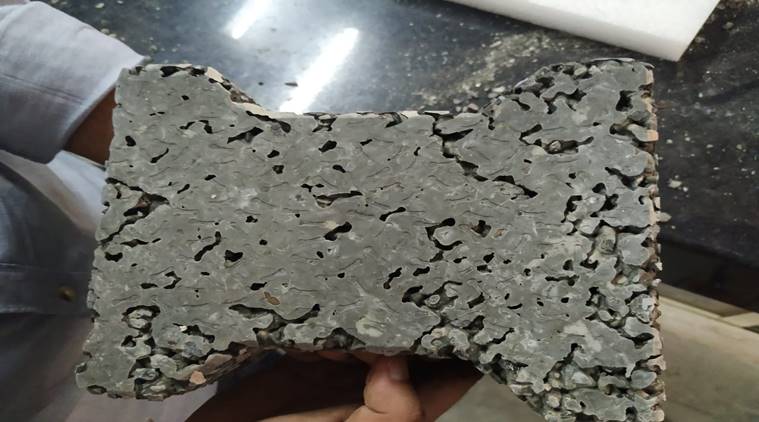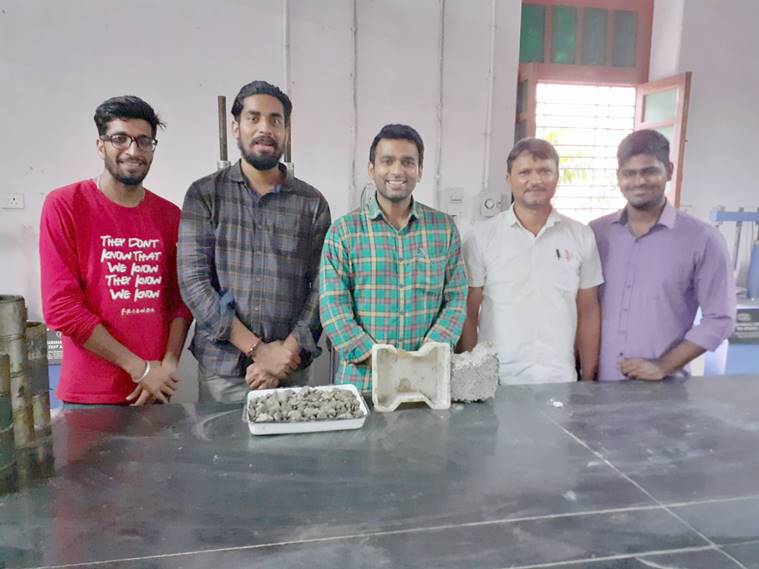- India
- International
IIT-BHU students create bricks from waste to harness rainwater, replenish groundwater level
These bricks can be used in roads and can pass the rainwater directly into the ground and remain intact. The innovation is being tested with different proportions and will be available in the market soon.
 Brick that passes water through its surface to ground.
Brick that passes water through its surface to ground.
Research scholars from the Indian Institute of Technology (IIT)-Banaras Hindu University (BHU) have developed a brick which can pass water through it. These ‘sustainable paver blocks’ are aimed at being used in the construction of roads and pavements to prevent floods and waterlogging during heavy rain. Made using construction waste from roads and pavements, these are economically feasible, porous and replenish the groundwater level, claim IIT-BHU researchers.
The credit for the invention goes to three research scholars — Mayank Sukhija, Mohit Chaudhary and Nirmal Prasad — all PhD scholars at the civil engineering department, transportation section at the institute and Nikhil Saboo their supervisor.
In video| See how the porous brick works
The recent heavy rains in the region inspired the trio to shift from their individual theses to work on this project, to allow rainwater to seep directly into the ground. “Recently, heavy rains led to waterlogging near our campus. We thought of creating something that could directly pass rainwater into the ground. It took us one-and-a-half months to come up with this product,” informed Mayank.
The team used four products in the construction of the brick — cement, reclaimed asphalt pavement (RAP) or waste material obtained from roads and pavements, superplasticiser and water. They are working on different combination ratios of the products to create strengths for varied uses, such as carrying heavyweight objects.
 (Left to Right) Mayank Sukhija, Mohit Chaudhary, Nikhil Saboo (Supervisor), Roshan bhandari ( Lab assistant) and Nirmal Prasad.
(Left to Right) Mayank Sukhija, Mohit Chaudhary, Nikhil Saboo (Supervisor), Roshan bhandari ( Lab assistant) and Nirmal Prasad.
The researchers added, “There is no system of conserving rainwater and most of it goes waste, despite harnessing materials. If roads and pavements are used, the groundwater levels will also increase. Most areas in metros and cities are concrete and can be converted into harnessing sites as they have closed channels underneath.”

“We aim to make 500 different blocks for testing,” remarked Mayank, adding, “We are yet to finalise the cost. Since the only cost of creating this product is that of cement, besides construction waste and water, it can be easily available at affordable rates.”
Must Read
Apr 23: Latest News
- 01
- 02
- 03
- 04
- 05






































